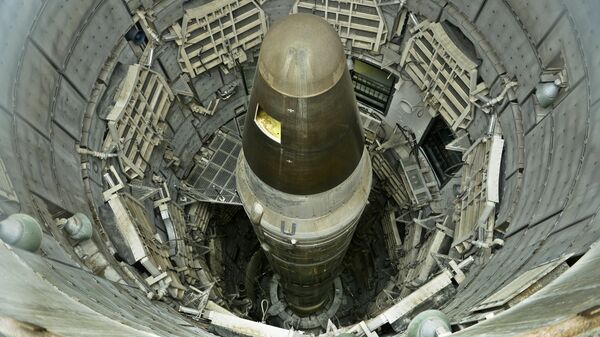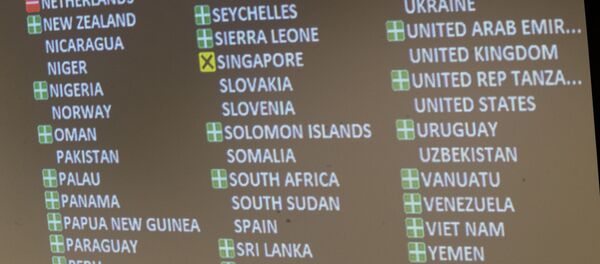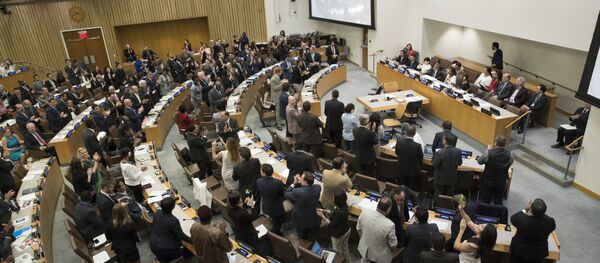MOSCOW (Sputnik) — The first legally binding treaty prohibiting nuclear arms was adopted on July 7 by more than 120 UN member states. The document bans a whole range of nuclear-weapon-related activities, including development, production, manufacturing and possession among other issues.
The treaty was opened for signature on Wednesday at the UN Headquarters in New York. The document has already been signed by more than 50 states, including Austria, Brazil, Indonesia, New Zealand and South Africa, in the first day, however the nuclear powers had boycotted it.
"This is a historic event, despite the refusal of the nuclear-armed states to sign this treaty… When it enters into force (after 50 ratifications), it will make it more difficult for the nuclear-armed states, whether party to the Nonproliferation Treaty or not, to keep arguing that their possession of nuclear weapons is legitimate for protecting their own security and that of their allies," Finaud told Sputnik, adding that the agreement would fill the legal gap prohibiting all weapons of mass destruction.
The expert added that the civil society in the nuclear powers would put pressure on governments in order to achieve nuclear disarmament.
Finaud's words are echoed by Goetz Neuneck, the professor of Physics and Acting Co-Director of the Institute of Peace Research and Security Policy at the University of Hamburg.
"The Treaty is important because this document shows the will of two thirds of the UN members that nuclear weapons cannot be seen as 'normal weapons' and should be outlawed. Bio- and Chemical weapons are prohibited by international law. Nuclear weapons fall in the same category and cannot be used under any scenario. They cause catastrophic damage for nations and provoke other to build their own arsenal," the German scholar told Sputnik.
He added that several nuclear powers did not continue their disarmament obligations and should come back to the negotiation table.
"The Treaty on the Prohibition of Nuclear Weapons is insignificant for international nuclear disarmament because none of the nine countries that possess nuclear weapons are prepared to accept the Treaty," Samore told Sputnik.
Shen Dingli, the associate dean at the Institute of International Studies and the director of the Program on Arms Control and Regional Security Studies at Fudan University, has the similar position as for non-participation of the countries possessing nuclear weapons in the treaty.
"Without the signature of the P5s, the Treaty is not effective to really ban all nuclear weapons," Dingli told Sputnik.
The list of nine countries that possess or allegedly have nuclear weapons, includes five permanent members of the UN Security Council (UNSC), namely China, France, Russia, the United Kingdom and the United States, as well as India, Israel, North Korea and Pakistan.



